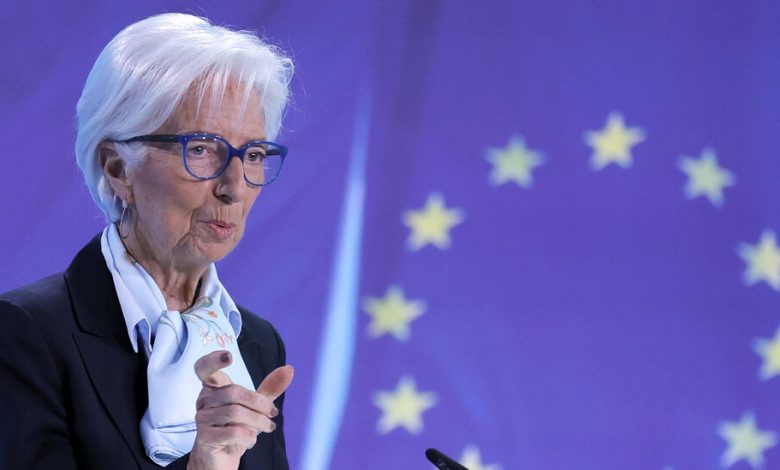Europe’s Fed Problem


Christine Lagarde, the European Central Bank president, is expected to announce interest-rate cuts tomorrow. But the central bank may be hamstrung by the Fed and inflation on future moves.Credit…Ronald Wittek/EPA, via Shutterstock
The Fed’s shadow over the E.C.B.
Thursday is a big day for the European Central Bank. It is widely expected to lower interest rates by a quarter percentage point, its first cut since 2019 — and outpace the Fed in lowering borrowing costs. Investors will watch to see how that would influence monetary policy beyond Brussels, as well as its effect on global trade, stock markets and the dollar.
The big questions on our mind: Will Christine Lagarde, the central bank’s president, signal further cuts at its July and September meetings? And how far can the E.C.B. go if the Fed stays put?
The good news: Economists say the era of elevated rates around the world is coming to an end.But they add that sticky inflation will tie central bankers’ hands, limiting their ability to lower borrowing costs much.
Policymakers are most likely entering a “shallower for shorter” phase, Holger Schmieding, an economist at Berenberg Bank, told DealBook, in which the cuts are staggered and rates remain above prepandemic levels.
The E.C.B. is considered a step ahead of the Fed. The futures market on Wednesday saw one Fed rate cut before Election Day, probably in September. That said, those odds could change if Friday’s jobs report brings any surprises.
Watch the dollar and stocks. A rate cut by the E.C.B. would most likely push the dollar higher against the euro. That could be good news for European exporters like Airbus and automakers.
